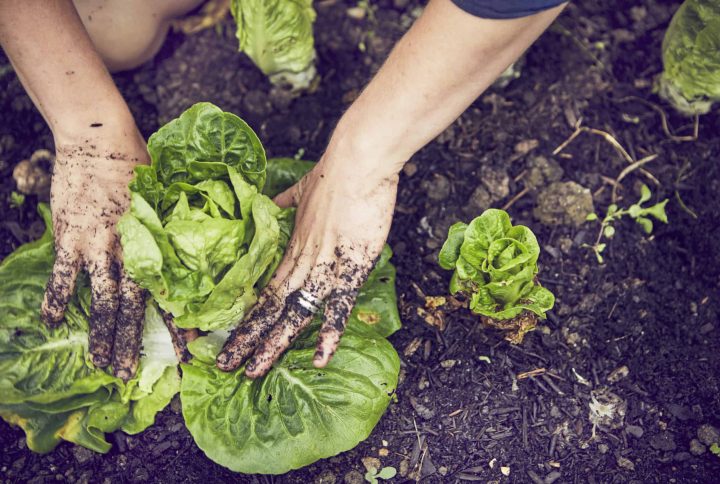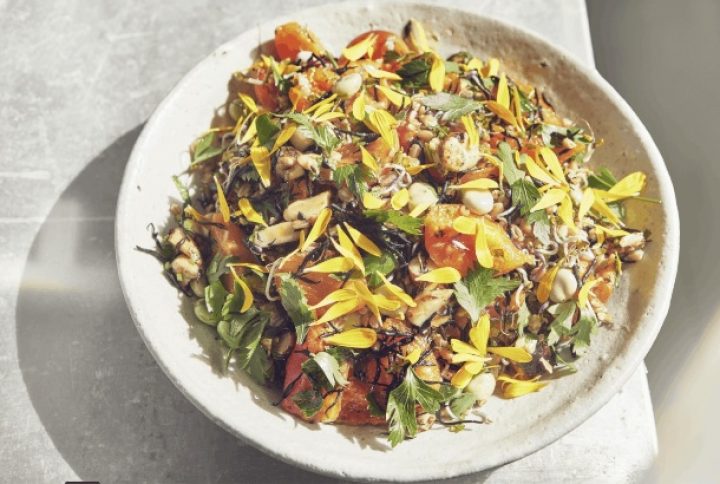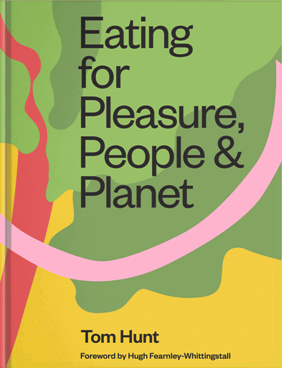Food Facts
Further readings, suppliers & certifications
The Big Picture:
Facts from Eating for Pleasure, People & Planet
‘Simply put, we could sequester more than 100% of current annual CO2 emissions with a switch to widely available and inexpensive organic management practices, which we term “regenerative organic agriculture”.’ Regenerative Organic Agriculture and Climate Change, 2014
‘Around 40% of all food produced is wasted, or 1.3 billion tonnes a year. This amounts to 1 trillion US dollars of wasted or lost food.’ Food and Agricultural Organisation of the United Nations
‘Plastic pollution has increased tenfold since 1980.’ Intergovernmental Science-Policy Platform on Biodiversity and Ecosystem Services (IPBES)
‘European countries have more than three times more food than they need, while the US has around four times more food than is needed.’ Tristram Stuart
‘Food waste generates 3.3 billion tonnes of greenhouse gases. Uses up to ‘1.4 billion hectares of land – 28% of the world’s agricultural area’. And a recent study showed that reducing food waste is the third most effective way to tackle climate change.’ Tristram Stuart

From Farm
‘More than a third of the world’s land surface and nearly 75% of freshwater resources are now devoted to crop or livestock production.’ Intergovernmental Science-Policy Platform on Biodiversity and Ecosystem Services (IPBES)
‘As farms get larger, crop diversity declines and post-harvest loss increases.’
How much of the world’s food do smallholders produce? Vincent Ricciardi et al, 2018
‘Farms under 2 hectares produce 30–34% of food supply on 24% of gross agricultural area.’
How much of the world’s food do smallholders produce? Vincent Ricciardi et al, 2018
‘There are more than 30,000 edible plant species in the world, including all sorts of exotic heirloom fruits and vegetables, ancient grains and forgotten foods that are kept alive by small farmers and seed banks.’ Tom Hunt, Eating for Pleasure, People & Planet
‘In the last century, 94% of our seed varieties have disappeared.’ Seed The Untold Story

To Table
‘The level of enjoyment we experience in eating our food has very real biochemical consequences that directly affect our metabolism and digestion.’ David, founder of The Institute for the Psychology of Eating
‘A diet of minimally processed foods close to nature, predominantly plants, is decisively associated with health promotion and disease prevention’ Can We Say What Diet Is Best for Health? D.L. Katz1,2 and S. Meller, March 2014
‘Eating a plant-rich diet is in line with the five healthy ‘blue zones’ in the world, where the most centenarians live – the Italian island of Sardinia, Okinawa in Japan, Ikaria in Greece, Loma Linda in California and the Nicoya Peninsula in Costa Rica.’ Tom Hunt, Eating for Pleasure, People & Planet
‘Plant-based diets, especially when rich in high-quality plant foods, are associated with substantially lower risk of developing type 2 diabetes.’ Ambika Satija, et al, Plant-Based Dietary Patterns and Incidence of Type 2 Diabetes in US Men and Women. 2016
‘For every £1 UK consumers spend on food, additional costs of around £1 are incurred. These costs are not paid by the food businesses, nor are they included within the retail price of food. Instead they are passed on to society in a range of hidden ways.’ Ian Fitzpatrick, et al, The Hidden Cost of UK Food, 2017

Further Readings
UN Report: Nature’s Dangerous Decline ‘Unprecedented’
UNITED NATIONS
Drawdown:
The Most Comprehensive Plan Ever Proposed to Reverse Global Warming
WALTER WILLET ET AL

Sustainable Diets
PAMELA MASON, TIM LANG

The Noma Guide to Fermentation
DAVID ZILBER, RENÉ REDZEPI

The Omnivore's Dilemma:
A Natural History of Four Meals
MICHAEL POLLAN
UK Suppliers
For the best value and health benefits frequent your local whole food shop and markets.
If ordering online, request minimal and compostable packaging when you place your order.
FRESH FOODS:
These search engines will help you find a local market, veg box or CSA
www.farma.org.uk
www.communitysupportedagriculture.org.uk
www.foodboxfinder.co.uk
- RIVERFORD ORGANICS
employee-owned national veg box scheme
www.riverford.co.uk - FARMDROP
fresh produce direct from the farm
www.farmdrop.com - FORAGER
foraged foods
www.forager.org.uk - SOUTH DEVON CHILLI FARM
online chilli orders
www.southdevonchillifarm.co.uk
DRY GOODS:
www.nahs.co.uk find a whole food shop (a good one will stock all the products you’d find in a supermarket)
- ESSENTIAL COOPERATIVE
if you’d like to set up a wholefoods buying group
www.essential-trading.co.uk - BUY WHOLE FOODS ONLINE online whole foods supplier www.buywholefoodsonline.co.uk
- HODMEDOD’S
British-grown pulses and grains
www.hodmedods.co.uk - CORNISH SEAWEED COMPANY
dried seaweed
www.cornishseaweed.co.uk - SPICE MOUNTAIN
Borough Market, London shop and online spices
www.spicemountain.co.uk - HALEN MÔN
Anglesey sea salt
www.halenmon.com
Certifications and Charities

SOIL ASSOCIATION
The Soil Association is the UK’s leading membership charity campaigning for healthy, humane and sustainable food, farming and land use. Look for their logo on products to make sure they are certified organic.

DEMETER
Certification organization for biodynamic and organic agriculture. Biodynamic farming is a holistic and regenerative approach to agriculture that supports biodiversity and soil. Look out for their logo on products and be assured the ingredients come from the best possible farms.

THE FAIRTADE FOUNDATION
Fairtrade changes the way trade works through better prices, decent working conditions and a fairer deal for farmers and workers in developing countries. Aim to buy Fairtrade when purchasing commodity foods like chocolate, sugar, tea and coffee from further afield.

THE LANDWORKERS' ALLIANCE
Creating a better food and land-use system, building skills and knowledge in agroecology and working for food sovereignty, sustainable forestry and the right to food. The land workers alliance are an organisation of small farmers working to improve food policy. Check out their amazing film 'In Our Hands'.








